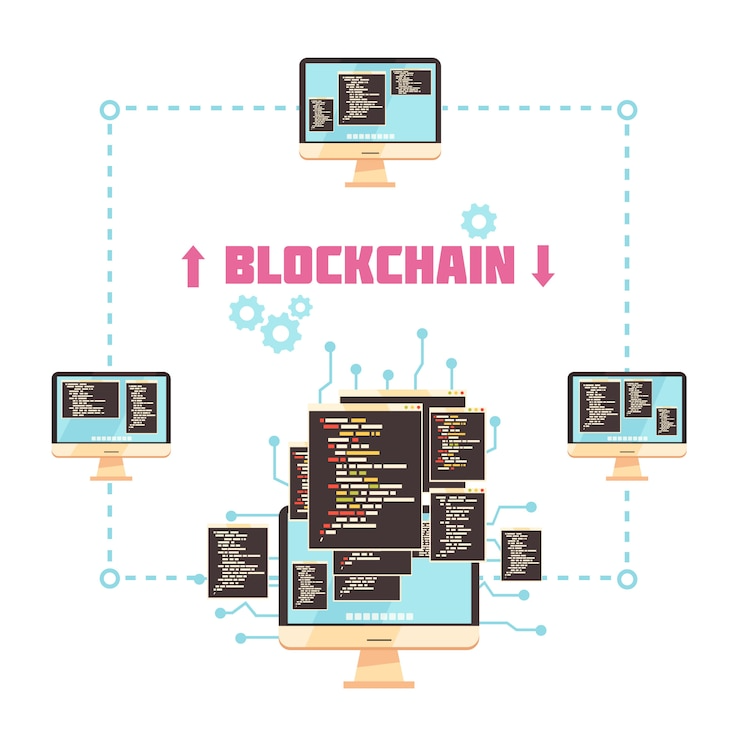Blockchain technology is a term you’ve probably heard a lot lately. It’s been used to power cryptocurrencies like Bitcoin, but did you know it has many more uses in areas like banking, healthcare, and supply chains? If you want to understand what blockchain is, why it matters, and how to learn more about it, this blog is for you! We’re going to show you how to do research on blockchain step by step in the easiest way possible.
What is Blockchain Technology?
Before diving into research, it’s important to understand what it is. Think of it as a digital notebook that stores information. But here’s the twist: This notebook is many cspread acrossomputers, and no one can just erase or change what’s written. Learn more about our Software Development services to see how we help businesses integrate blockchain solutions!
Let’s break it down further:
- Decentralized: Imagine this notebook is not stored on just one computer. It’s on hundreds or thousands of computers, all sharing the same information. This makes it more secure.
- Transparent: Anyone can see the notes, but they can’t change them.
- Secure: The information is locked up using codes, so it’s very hard for hackers to break in.
- Unchangeable: Once something is written in this notebook, it can’t be erased or changed. This is great for making sure no one cheats.

Step 1: Know What You Want to Learn
Before starting your research, ask yourself what do you really want to know? Blockchain is a big topic, and there’s a lot of information out there. So it helps to figure out exactly which part of this technology you’re interested in. Here are a few things people usually want to know about:
- How blockchain works (what’s going on behind the scenes)
- How blockchain is used in cryptocurrencies (like Bitcoin)
- How to build something using blockchain (like apps)
- How to keep data safe on a blockchain
- How blockchain is changing industries (banking, healthcare, etc.)
By deciding what you’re most interested in, you can focus your research and make it much easier to learn.
Step 2: Start with the Basics
To start your research, you need to get the basics down. Think of this as getting to know your subject before diving deeper.
Books & eBooks
Some good beginner books on blockchain include:
- “Blockchain Basics” by Daniel Drescher
- “Mastering Blockchain” by Imran Bashir
- “Blockchain Revolution” by Don Tapscott & Alex Tapscott
These books explain blockchain in a simple way, making it easy for you to follow along, even if you’re new to the subject. Interested in enhancing your skills? Check out our IT Training & Skills Development programs for tech enthusiasts like you!
Online Courses
If you like learning from videos, there are many free and paid online courses where you can learn blockchain step-by-step. Here are a few platforms:
- Coursera: It has beginner-friendly courses like “Blockchain Basics” or “Blockchain for Business.”
- Udemy: Another good platform with courses like “Blockchain A-Z” and “Blockchain Developer Bootcamp.”
- edX: Offers free courses and certifications from big universities like MIT and UC Berkeley.
Whitepapers
You may also come across white papers. These are documents where blockchain projects explain exactly how their technology works. The Bitcoin Whitepaper by Satoshi Nakamoto is the first-ever paper written on blockchain, so it’s a great place to start.
Step 3: Join Online Communities
Blockchain is a growing field, and many people are already talking about it online. Joining some of these communities is a great way to learn from others. Here are some places to start:
- Reddit: Subreddits like r/Blockchain, r/Cryptocurrency, and r/Ethereum are filled with discussions and the latest news.
- StackExchange: A platform where you can ask questions and find answers from experts.
- Telegram & Discord: Many blockchain groups are active on these platforms where you can chat with others and ask questions.
These online groups are full of friendly people who will be happy to help you with any questions or confusion you may have. If you’re in need of reliable IT Support & Consultancy, we can guide you through the latest blockchain developments for your business.

Step 4: Learn About Blockchain Platforms and Tools
There are many different blockchain platforms out there, and they each have their own special uses. By learning about them, you can understand how blockchain works in different contexts. Here are a few well-known blockchain platforms:
- Ethereum: Ethereum is famous for being able to create smart contracts and decentralized applications (dApps). It’s a big deal in the blockchain world because of these features.
- Hyperledger: This is more for businesses. It focuses on private blockchain networks where businesses can share information securely.
- Solana: Solana is known for being really fast and capable of handling lots of transactions at once. It’s a great option for businesses needing quick blockchain solutions.
Exploring these platforms helps you understand how blockchain is used in different industries and projects.
Step 5: Stay Updated with News and Trends
Blockchain is constantly changing and evolving. New projects are launching every day, and new ideas are being discussed all the time. To keep up, you should follow some news sources that focus on blockchain. Here are some popular places to stay updated:
- CoinDesk and CoinTelegraph: These are top websites for blockchain news and updates on cryptocurrency.
- Google Scholar: For more academic research and papers on blockchain.
- Blockchain Insider Podcast: This podcast provides valuable insights from experts in the blockchain world.
By following these news sources, you’ll always know what’s happening in the blockchain world.
Step 6: Get Hands-On with Blockchain
Sometimes, the best way to learn about something is by doing it yourself. With blockchain, there are many tools and platforms that allow you to experiment and build your own projects.
For example:
- Ethereum lets you create smart contracts (programming that runs automatically when certain conditions are met).
- Truffle Suite is a tool that helps you build blockchain-based applications (dApps).
- Ganache is a tool that lets you test your blockchain projects without actually using real money.
By trying out these tools, you can get a real feel for how blockchain works and start building your own projects.
Step 7: Discover Real-World Uses of Blockchain
Finally, it’s important to understand how real businesses and industries are using blockchain. This will give you a better idea of how blockchain is changing the world. Some common uses include:
- Supply Chains: Companies use blockchain to track products from the factory to the store, making sure nothing gets lost or stolen along the way.
- Healthcare: Blockchain is used to keep medical records safe and private.
- Finance: Blockchain is used for fast, secure transactions that help prevent fraud.
- Voting Systems: Some places are using blockchain to make voting more secure and transparent.
Understanding how blockchain is used in the real world will help you see its huge potential.
Frequently Asked Questions (FAQ)
Q1: What is blockchain technology?
Blockchain is a digital system that keeps data safe, transparent, and secure. It’s like a public notebook that everyone can see, but no one can change once the information is written.
Q2: How do I start learning about blockchain?
Start by reading beginner-friendly books, taking online courses, and joining communities like Reddit or StackExchange to ask questions and learn from others.
Q3: What blockchain platform should I learn?
Ethereum is a great place to start because it’s popular and used for smart contracts and dApps. If you’re interested in business solutions, check out Hyperledger.
Q4: Can blockchain be used for anything other than cryptocurrency?
Yes, it is used in many industries, including banking, healthcare, supply chains, and even voting systems.
Q5: Is blockchain secure?
Yes, it’s very secure. Data on a blockchain is encrypted, making it extremely hard for hackers to change. Once something is on the blockchain, it can’t be erased or altered.
Conclusion
Blockchain is an amazing technology, and researching it doesn’t have to be hard. By following these simple steps, you’ll have a strong foundation and will be able to dive deeper into whatever aspect of blockchain interests you the most. Keep learning, keep experimenting, and you’ll be an expert in no time!
Explore now, How Does a Hash Helps to Secure Blockchain Technology?
